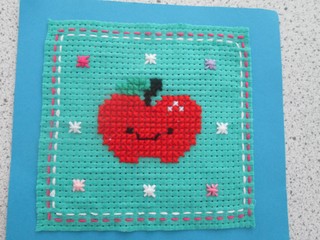Home Economics
Introduction to the Department
The aim of Home Economics Department is to provide pupils with invaluable life skills, through the acquisition of knowledge, practical experience and technological activity.
Pupils learn to:
- be discerning consumers considering dietary goals when choosing food
- apply nutritional knowledge to plan balanced meals
- create a variety of textile items through practising a wide range of sewing techniques
- produce a wide range of dishes through development of food preparation techniques
- apply a problem-solving approach to developing new dishes and textile items.
Organisational skills are important in Home Economics since they bring together a number of areas of knowledge and planning skills. This will involve making reasoned decisions about priorities, and planning an appropriate course of action for a practical assignment. By having the opportunity to carry out practical assignments in a variety of contexts, pupils can be involved in subsequent evaluation of the effectiveness of the assignments.
Courses offered in the Department
S1/2 – Home Economics is provided to all pupils as part of their Broad General Education.
S1 – The following units are covered:
- Ready Steady Cook – Kitchen safety, food hygiene, identification and use of kitchen equipment, methods of cooking and heat transfer.
- Muffin Magic – Product development challenge to create a new muffin recipe. Sensory analysis is carried out to enable pupils to evaluate their final product.
- Healthy Eating – Eatwell Guide, Dietary Goals, nutrition and food labelling.
- Textile Technology – Design and make a hand embroidered bookmark or picture.






S2 – The following units are covered:
- The Nutrients – Nutrition, Dietary Goals, prevention of diet-related illnesses.
- Diet through Life – Needs of individuals at different life stages, special dietary needs, food intolerances and allergies.
- Food Choice and Scottish Foods – Exploring traditional Scottish foods, factors affecting food choice and food sustainability.
- Get Creative with Textiles – Investigating a range of natural and synthetic fibres, importance of recycling textiles, safe use of equipment when working with textiles and developing practical skills using the sewing machine to make a Snood.
Practical cookery skills are developed through practising a wide range of food preparation techniques making a range of savoury and sweet dishes and baked items.
S2 Harris Tweed elective
This course enables pupils to learn about the history and production of Harris Tweed through visiting the Harris Tweed Authority. Pupils individually create a Harris Tweed cushion with an appliqué design.



S3 – Pupils continue with their Broad General Education but can choose to begin to study the
following courses from S3 to S6.
- Practical Cookery
- Fashion & Textile Technology
- Health & Food Technology
S4 – National 3 & 4 courses in Practical Cookery
National 4 & 5 courses in Health & Food Technology
National 4 & 5 courses in Fashion & Textile Technology
S5/6 – National 5 course in Practical Cookery
National 5 & Higher courses in Health & Food Technology
National 5 & Higher courses in Fashion & Textile Technology
Refer to Choices Booklets available on the school website for more detail about the courses offered.
Higher and Further Education and Careers
The courses offered in the Home Economics Department can lead to the following further studies and careers.
Higher Education:
The following courses can be studied at degree level in Scottish Universities:
BA (Hons) Food, Nutrition and Textiles Education
BSc (Hons) Food, Nutrition and Human Health
BSc (Hons) Nutrition
BSc (Hons) Food & Consumer Science
BA and BSc degree courses in Fashion
BA (Hons) Hospitality and Tourism Management
Further Education:
The following courses can be studied at HNC/HND level:
HNC Fashion Design and Production with Retail offered at Lews Castle College.
HND Fashion courses are offered at Cardonald College.
HNC/HND Hospitality/Catering college courses and apprenticeships
Careers:
Health and Food Technology
Food Technologist, Sports Nutrition, Nursing, Dietetics, Primary Teaching, Home Economics Teaching, Retail Management, Food Product Development, Food Photography, Trading Standards, Environmental Health, Consumer Advice and Marketing.
Fashion and Textile Technology
Retail and the fashion industry, Interior designer, Theatrical Costume designer, Home Economics teacher, Primary teacher, Pre-school education.
Hospitality
Hospitality Management, Catering Management, Tourism Industry, Professional cook/chef, Food Production/Technology.


